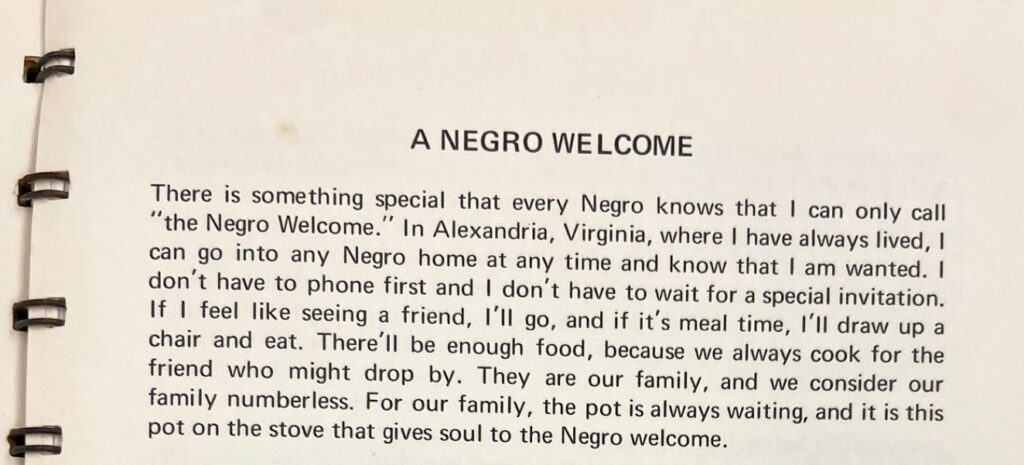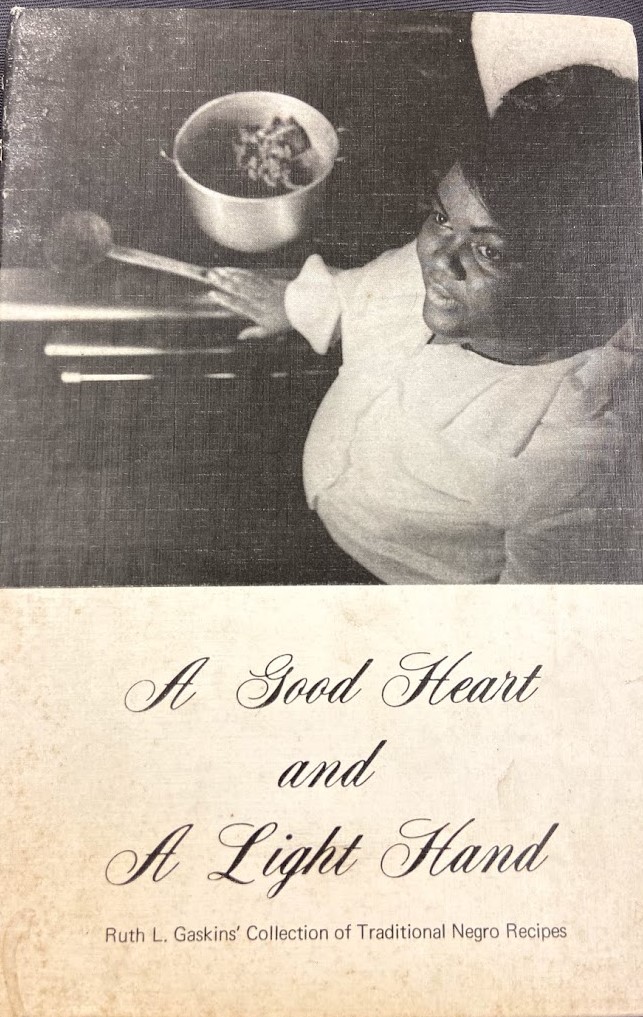Can I come over? I don’t want to invite myself…
Posted by Admin.August 2nd, 2021
Blog post by Christina White, undergraduate researcher at WVU
This is the eleventh post in White’s series on race, justice, and social change through cookbooks, featuring the following books from the Ebersole collection: Mammy Pleasant’s Cookbook, A Date with a Dish, A Good Heart and a Light Hand, and The Jemima Code.
After a busy day at North Elementary School, I used to knock on all my friends’ doors to see who was home and ready to play. One of them would pull me inside and say, “My mom says we can play after dinner. Eat with us!”
I’d always get nervous and say, “Are you sure? I don’t wanna invite myself!”
To young me, inviting oneself over was rude and invasive. My family told me not to be a burden, to respect privacy. Reading another cookbook at the West Virginia & Regional History Center, I learned that my upbringing differs from that of a community-oriented woman named Ruth L. Gaskins. She taught me to embrace any opportunity, maybe just more than before, to invite myself over and share a meal with a friend.
A Good Heart and A Light Hand by Ruth L. Gaskins was published in 1968 in a world where family extended beyond the nuclear definition of mother, father, siblings, etc. Ruth describes a tradition of welcoming guests as “the Negro Welcome.”
Here it is:

Ruth contextualized this Welcome through slavery: “For over 200 years we were told where to live and where to work… The only real comfort came at the end of the day, when we took either the food that we were given, or the food that we raised… and we sat down with our own kind and talked and sang and ate.”

Restaurant food isn’t a big deal when you cook all day for a family reunion in your own home. However, the Welcome can travel, and does so mostly to the Church.
We’ll talk more about the significant role of the Church later; I’ll wrap up this post with a reflection on inviting yourself to another’s home.
Boundaries and etiquette should always be considered, but this spiral-bound cookbook introduced me to a different way of life. “Tight friends” understand their automatic invitation to come over and share a meal. My childhood buddies didn’t hesitate to pull me inside. It took years of social conditioning in middle and high school to make me believe that I should mind my business or avoid being a bother. If someone is bothering me, I’d probably let them know! For too long, I incorrectly assumed that I was a nuisance or that an invitation wasn’t genuine.
When I extend my home and kitchen to you, I mean it. Ruth and her community meant it. Traveling abroad during college revealed a multitude of cultures and families that love having new guests over for dinner. Food takes on a new role: a way to welcome, display affection, and become part of a community.
“A Negro kitchen belongs to any woman who wants to use it.”





